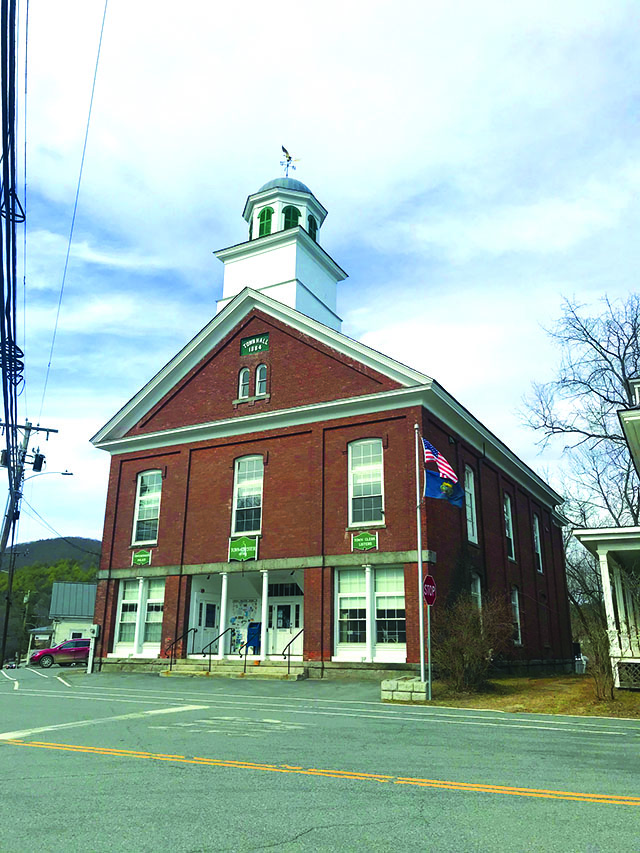CHESTER, Vt. – The Chester Selectboard met for their second monthly meeting on April 17, covering many issues that have been ongoing for the town over the last year. Chief among these issues was the long-running discussion of the town’s looming short-term rental (STR) ordinance.

The proposed STR ordinance had been returned to the board by the town’s attorney Jim Caroll, with Caroll’s concerns about certain aspects’ potential to trigger lawsuits against the town, and how to potentially remediate those concerns. One of Caroll’s largest concerns was the way in which the ordinance treated hosted STRs – those in which a property owner or caretaker lives on site – differently than unhosted STRs. This different treatment was something the selectboard had discussed at length, and had been largely united in support of, given the perceived difference in value to the community between the two. In particular, Caroll felt that the application of different waiting periods between purchase and registration, and different caps on the numbers of hosted and unhosted STRs, could be used to litigate against the ordinance, claiming discrimination.
There was some discussion amongst the board on how to rectify this, with recently-elected board member Tim Roper suggesting that, if part of the issue with STRs is a reduction in primary-residence housing stock, then the caps and waiting period should be kept and applied evenly to both hosted and unhosted STRs. “Allowing…more full-time residences to become short-term rentals is going the wrong direction…I would caution against extending the number of the cap, and I would advocate for applying the waiting period to all, since we can’t split it,” Roper told the board.
Board member Arianna Knapp was less convinced that the waiting period was appropriate, but did support keeping the cap. “I struggle with the waiting period,” Knapp said, explaining that she felt that it made sense to guard against properties being purchased purely as investments, but not to deter those who may wish to purchase a property they intend to live in, who then rent out extra space in their home to pay for the property.
Ultimately, the board as a whole sided with Roper, electing to change the ordinance to apply the waiting period and cap on the number of units to all STRs in Chester, whether they are hosted or unhosted. The ordinance will be returned to Caroll for his feedback on the changes.
Moving on, the board discussed the ongoing Community Health Initiative, with particular focus on the proposal to keep Chester’s older ambulance to be used in the running of a revenue-generating, nonemergency transport service, rather than selling it off when their new ambulance is delivered. This revenue would, in part, fund some of the proposed expanded services to be taken on by Chester’s emergency departments as part of the initiative. The town was also seeking a pilot grant to test several services for a period of three years, after which the program would be reevaluated. Ambulance Chief Mike Randzio was also seeking approval from the board to train as a paramedic, which would allow him to provide a higher level of service to Chester residents.
Town manager Julie Hance summed up the initiative to the board by explaining that it is meant to “keep people out of the hospital at [a lower level of care], so that…your doctors, your nurses can address people that need [a higher] level of care.” This would be accomplished by allowing emergency department staff like Randzio to train in certain procedures that could be carried out in the home, rather than in an office or hospital setting. The board approved both the retention of the old ambulance, as well as Randzio’s proposal to train as a paramedic.
Finally, the board discussed the proposal to add a full-time fire chief position to the town’s fire department. This would round out the town’s emergency department heads, making all three of the positions full-time. One of the board’s concerns was that, while the position may be necessary, it was not immediately apparent to Chester residents why this was needed, as things appeared to be functioning smoothly on the surface. Police Chief Tom Williams spoke in support of the measure, saying, “I think it will solve a lot of problems, and keep a lot of liability off the town.” Williams told the board that the measure would greatly streamline communication and cooperation between emergency departments, allowing him to have a full-time counterpart in the fire department with whom he could coordinate, and thus allow the emergency departments to work together more fully. The addition of this position, plus the Community Health Initiative programs approved in the previous agenda item, would cost the town a total of $60,000, a cost the board and Hance felt were justified given the town’s growing emergency department needs, and the expanding scope of their duties. The board approved the full-time fire chief position, slated to start on or around June 15.
The Chester Selectboard will next meet on Wednesday, May 1, at 6:30 p.m., in the Chester Town Hall.